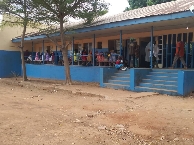Stakeholders in Bauchi State healthcare sector, have underscored the critical role of effective integrated support and supervision of Primary Healthcare Centre’s (PHCs), to enhance service delivery.
The Bauchi State Network of Civil Society Organisations, Mr Jinjiri Garba read the communique at the end of the multi-stakeholders dialogue on Integrated Supportive Supervision (ISS), on Friday in Bauchi.
Garba explained that the dialogue was convened by the Health System Strengthening Clusters of Strengthening Civic Advocacy and Local Engagement (SCALE), the U.S. Agency for International Development (USAID) and the Palladium-funded project.
He explained that the stakeholders were advocating for effective integrated supportive supervision, involving regular visits and guidance for healthcare workers to be provided by supervisors.
“The primary aim is to strengthen skills, boost motivation and ensure adherence to standards, ultimately improving the quality of healthcare services delivered at the grassroots level.
“Strengthening community synergy and engagement strategies to ensure healthcare services are aligned with local needs and preferences,” he said.
Garba said the stakeholders, while noting the non-release of funds for the first quarter of 2024, unanimously advocated for the release of money budgeted for Integrated Supportive Supervision activities in the state.
According to him, the project is also partnering with the organised private sector to attract funding and support for ISS activities in the state.
“It also advocated the need to create an expanded ISS Technical Working Group, that utilises the ISS outcomes in mobilising resources for gap closures in the state’s health sector,” he said.
“The Stakeholders also stressed the need for effective supervision in monitoring service delivery indicators, as well as assessing healthcare workers’ performance.
“This approach would ensure accountability and facilitate data-driven decision-making,” he said.
Garba further listed challenges in integrated supportive supervision including; the high cost of transportation, dwindling resources, and retirement of trained and certified supervisors.
“Inadequate human resources for health, and lesser coverage of facilities due limited resources that focus on main PHCs per ward,” he added.
The Stakeholders included legislators, government officials from relevant MDAs, Civil Society Organisations, traditional/religious leaders, the media and ward development committee members.
NAN


